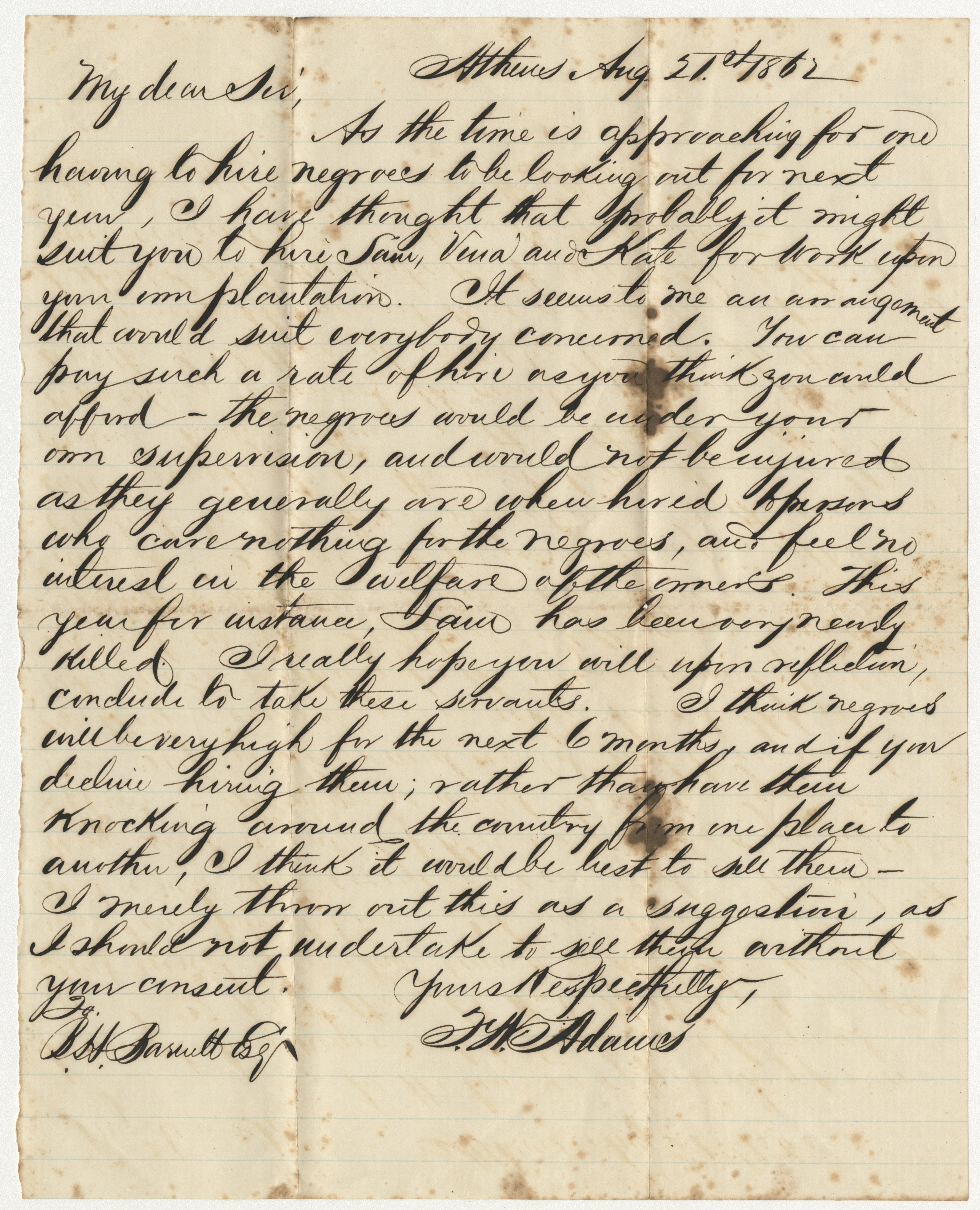A University of Georgia Libraries project will enhance access for African American genealogists to learn more about their family histories, illuminating the stories of enslaved Georgians.
The “Finding Their Names” project will allow hundreds of historical records to be digitized, transcribed, and placed online with important details such as names, locations, and dates that help identify enslaved individuals and place their histories within reach of their descendants. 
The project, funded by a $137,000 National Historical Publications and Records Commission grant, will draw upon hundreds of letters, diaries, ledgers, financial documents, estate records and more, dating from the 1760s to 1865, held in UGA’s Hargrett Rare Book and Manuscript Library.
Katherine Stein, associate university librarian for special collections and director of the Hargrett Library, explained that the documents can allow historians and descendants to glean details about the enslaved people living and working in Georgia businesses, farms, campuses, and other locations.
“While only a few of these documents center around the voices of enslaved men and women, they can be found in the periphery, often mentioned in passing in the daily lives of their enslavers,” she said, adding that more than 1,000 named individuals have been identified. "Digitization creates an opportunity to develop these passing mentions into more concrete narratives about the history and experiences of enslaved and formerly enslaved individuals in the U.S.”
The materials will be digitized and freely available online through the Digital Library of Georgia, a partnership of the UGA Libraries and the statewide GALILEO project. In addition, records of named enslaved individuals identified in the documents will be available through Enslaved.org, a national discovery hub for datasets related to the lives of enslaved people.
“This grant will allow the Hargrett Library to improve description of items in the archives and, by doing so, will give researchers and genealogists opportunities for greater access. Archival description like this is about user experience and discovery—because any library item is only as useful as it is discoverable,” said Will Stanier, grant project coordinator.
In addition to genealogical research, the project will benefit educators, as they work to convey the complicated history of enslaved people and families across Georgia, Stein added.
The “Finding Their Names” project will continue work that began in 2019 to identify and name enslaved individuals in records across Hargrett’s archival holdings, while enhancing descriptions and creating transcripts to become more searchable online.
Last year, Hargrett archivists and other historians participated in a national project to enhance descriptions of slavery and the lives of enslaved individuals on college campuses. The Mellon Foundation-funded On These Grounds: Slavery and the University project added UGA’s records to a shared data model describing the experiences of enslaved individuals in catalogs and metadata at academic libraries and historical institutions across the country.
